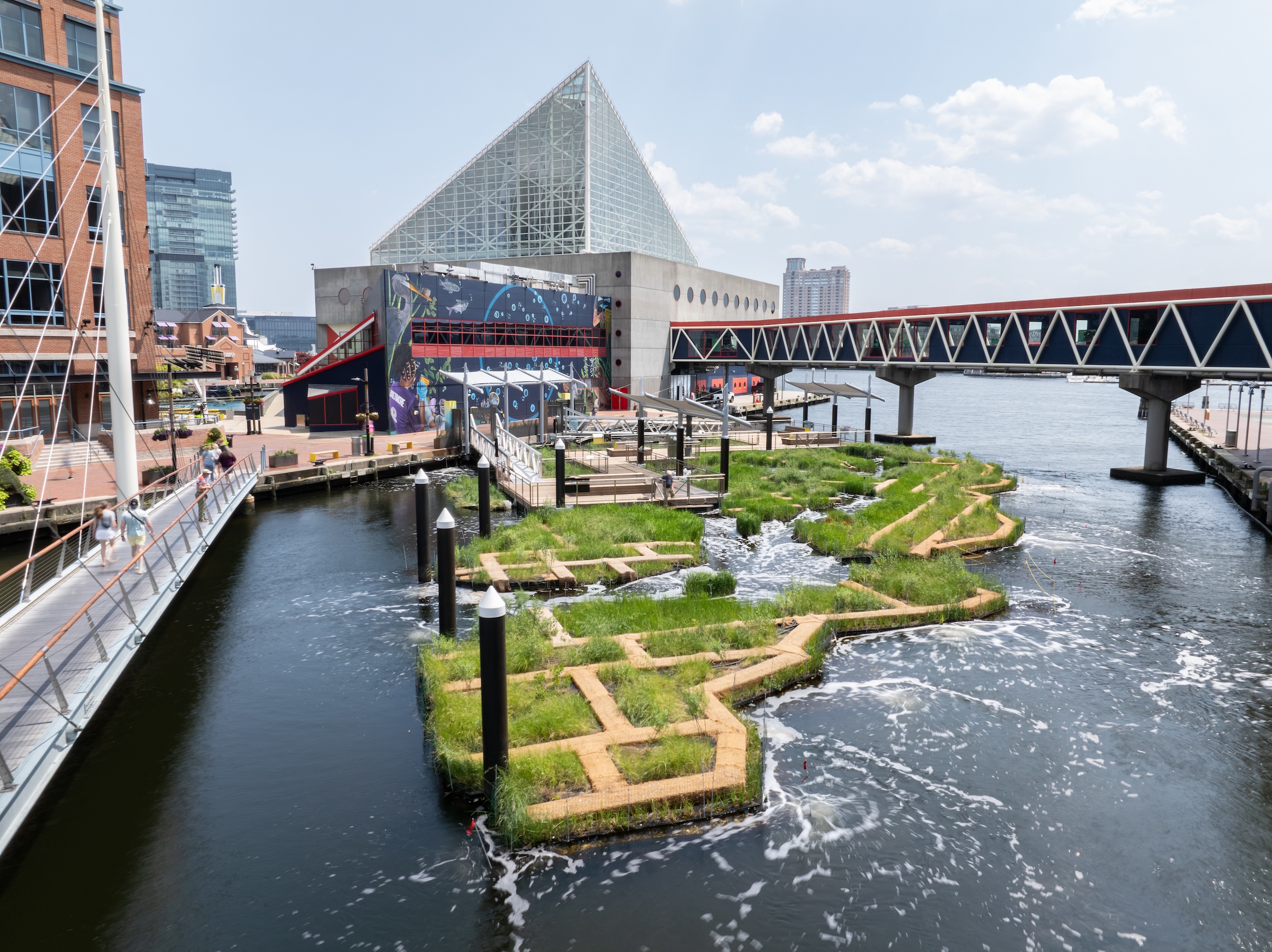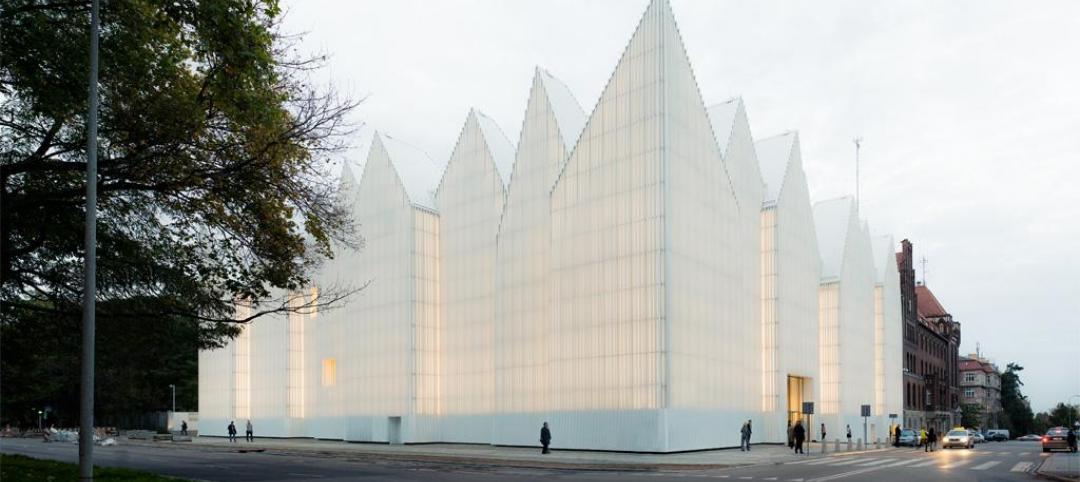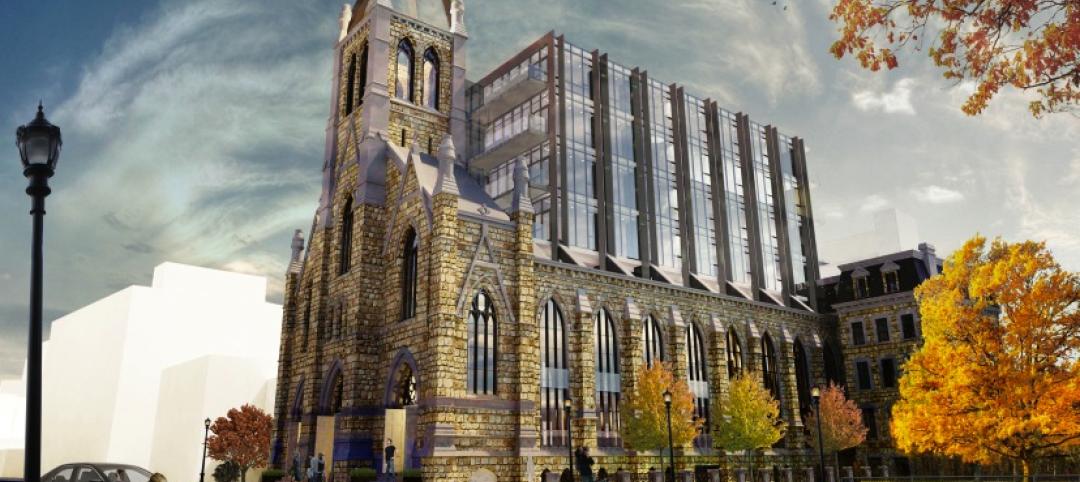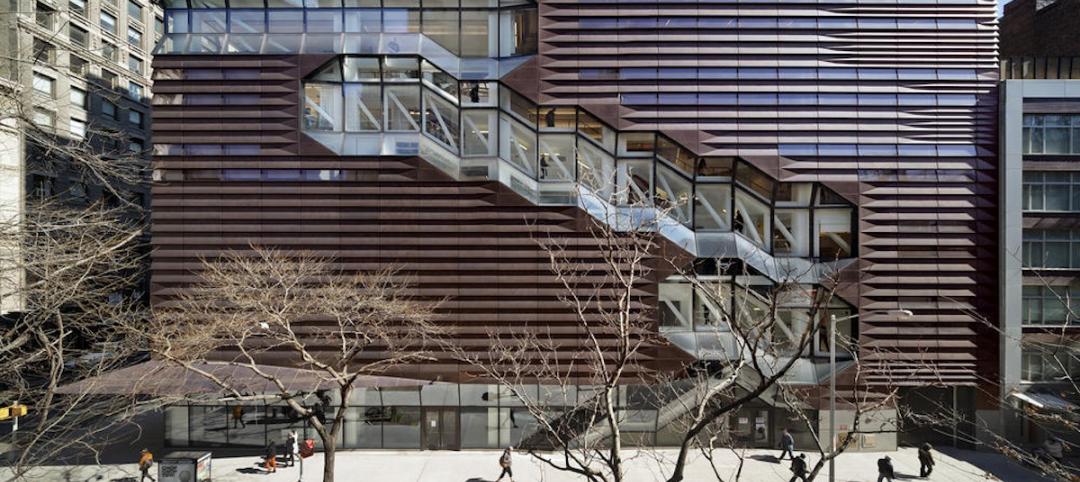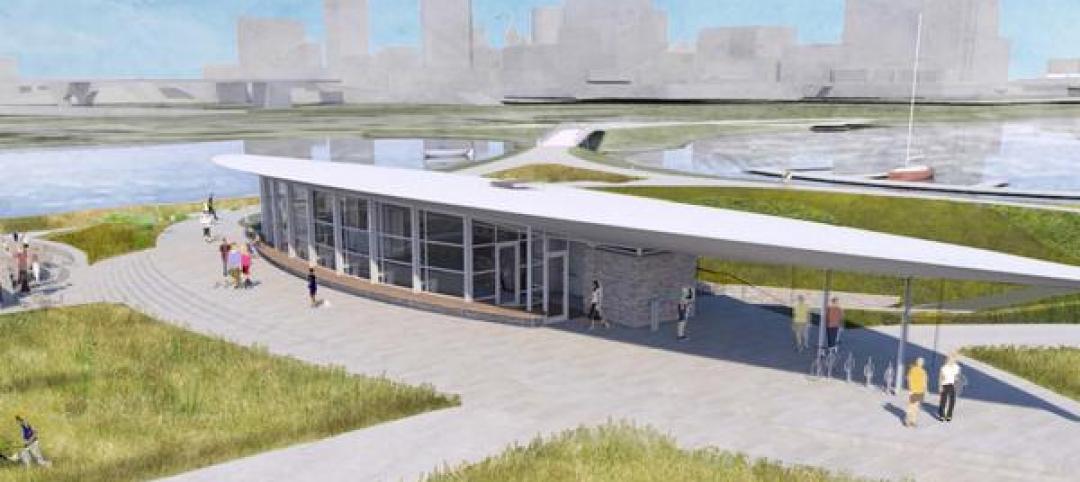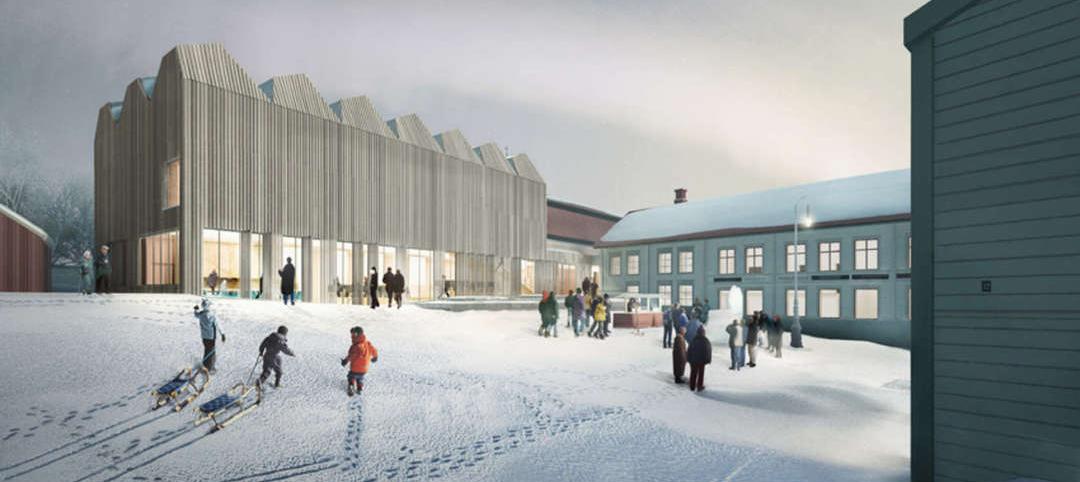The National Aquarium in Baltimore has opened the National Aquarium Harbor Wetland, a 10,000-sf floating wetland that mimics the Inner Harbor’s original Chesapeake Bay tidal marsh habitat. Located between Piers 3 and 4 on Baltimore’s Inner Harbor, the $14 million project features more than 32,000 native shrubs and marsh grasses.
With Ayers Saint Gross as the architect of record and Whiting-Turner as the construction contractor, the project is based on sustainable innovations developed by the Aquarium’s conservation and exhibit fabrication teams. At the project’s start about a decade ago, Studio Gang participated as the original concept architects.
“Harbor Wetland is the culmination of 12 years of research, innovation, and determination,” Aquarium president and CEO John Racanelli said in a press statement.
Ayers Saint Gross worked with the National Aquarium to design a sustainable, high-performing floating wetland intended to restore natural habitats and improve biodiversity and water quality. The project aims to reverse years of environmental degradation while creating a renewed, thriving ecosystem. The design features layered topography, with planting surfaces at tiered elevations to promote a variety of microhabitats and attract a greater diversity of species to the area.
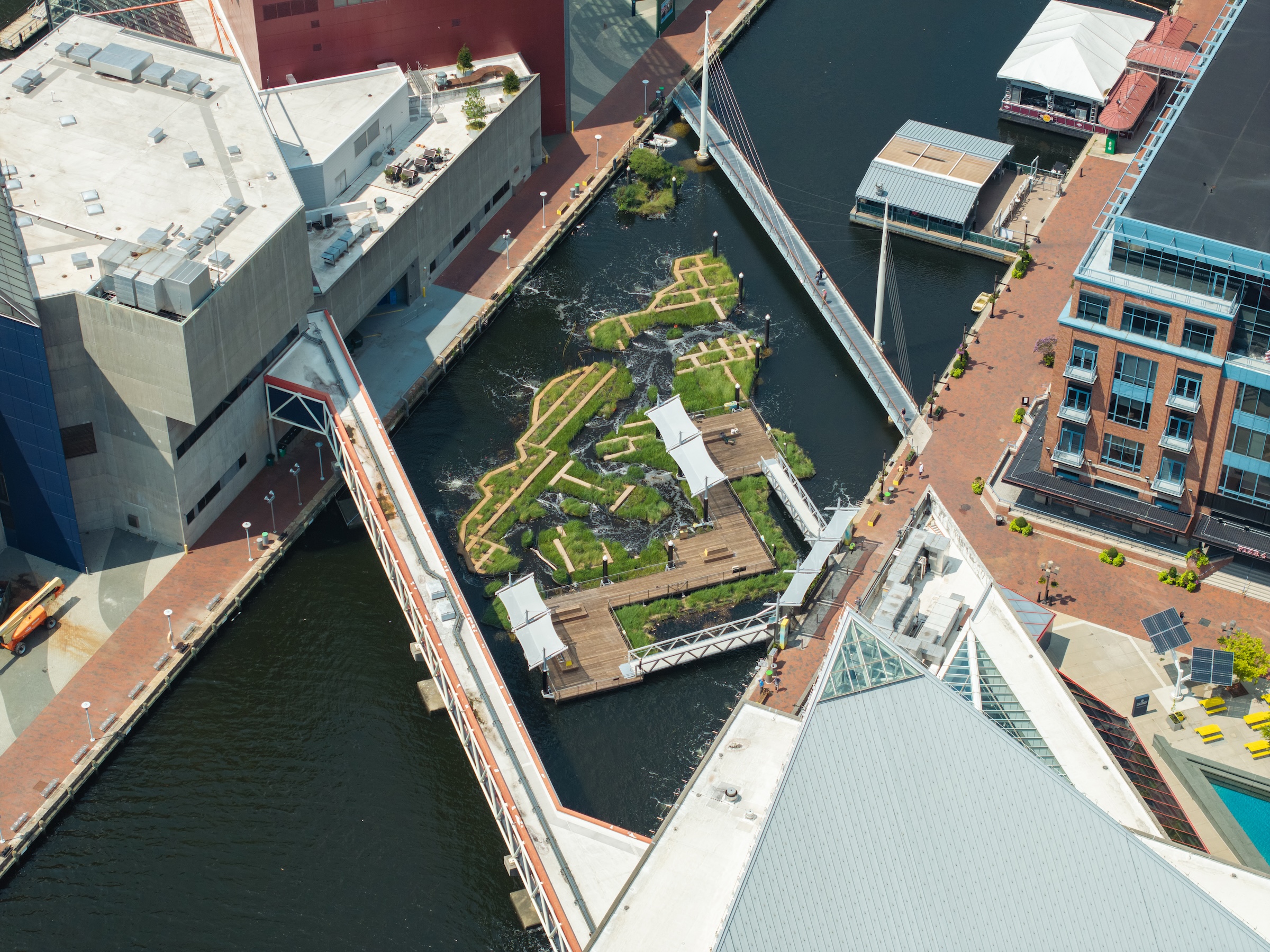
Free and open to the public, the constructed wetland serves as a floating classroom for the community. Interpretive signage allows guests to learn about the wetland, the species drawn to it, seasonal changes, and the surrounding harbor.
Featuring docks, walkways, and shade cover, the habitat is composed of recycled plastic matting planted with native tidal wetland shrubs and grasses, whose roots will grow down into the water. This provides microhabitats for native species while drawing nutrients and contaminants from the water. Coated with a UV protectant for durability, the matting is fixed to a system of air-regulated pontoons that allow for adjustable buoyancy of the wetland, offsetting weight gain from growing biomass.
Compressed air is pumped into the channel to circulate water through the wetland’s shallow channel. Bubbles from the compressed air release oxygen into the water—benefiting aquatic species and keeping water moving through the wetland as it would during tidal changes in a natural tidal marsh.
“We hear so much negative talk about Inner Harbor water quality, but there is life in this water and there always has been,” Jack Cover, the Aquarium’s general curator, said in the statement. “My hope is that when people see the life this wetland attracts, from tiny microorganisms to fishes, crabs, water birds, and even small mammals like muskrats and otters—all of which we’re already seeing here—they might reconsider our local waterways and perhaps even take better care of our natural surroundings.”
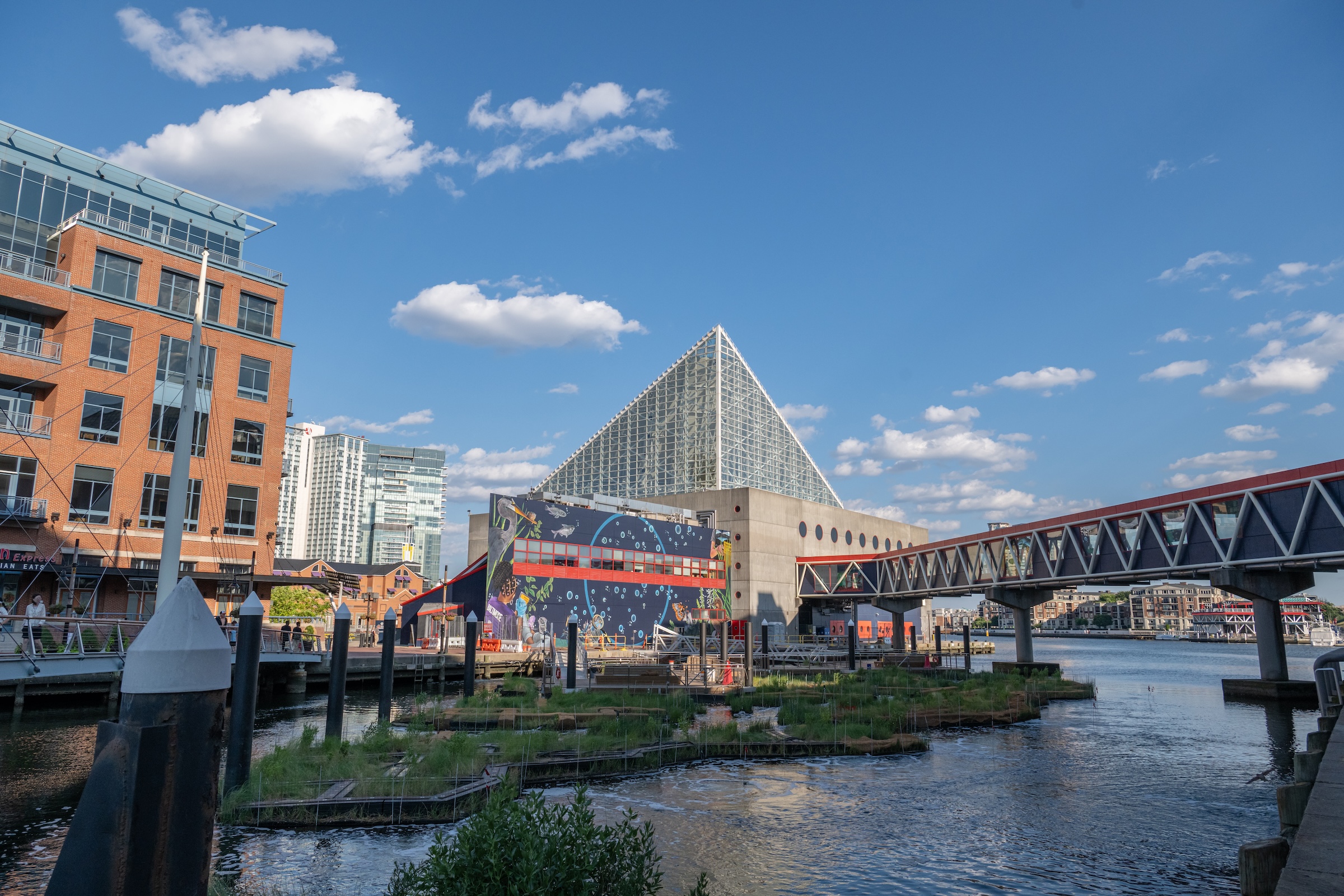
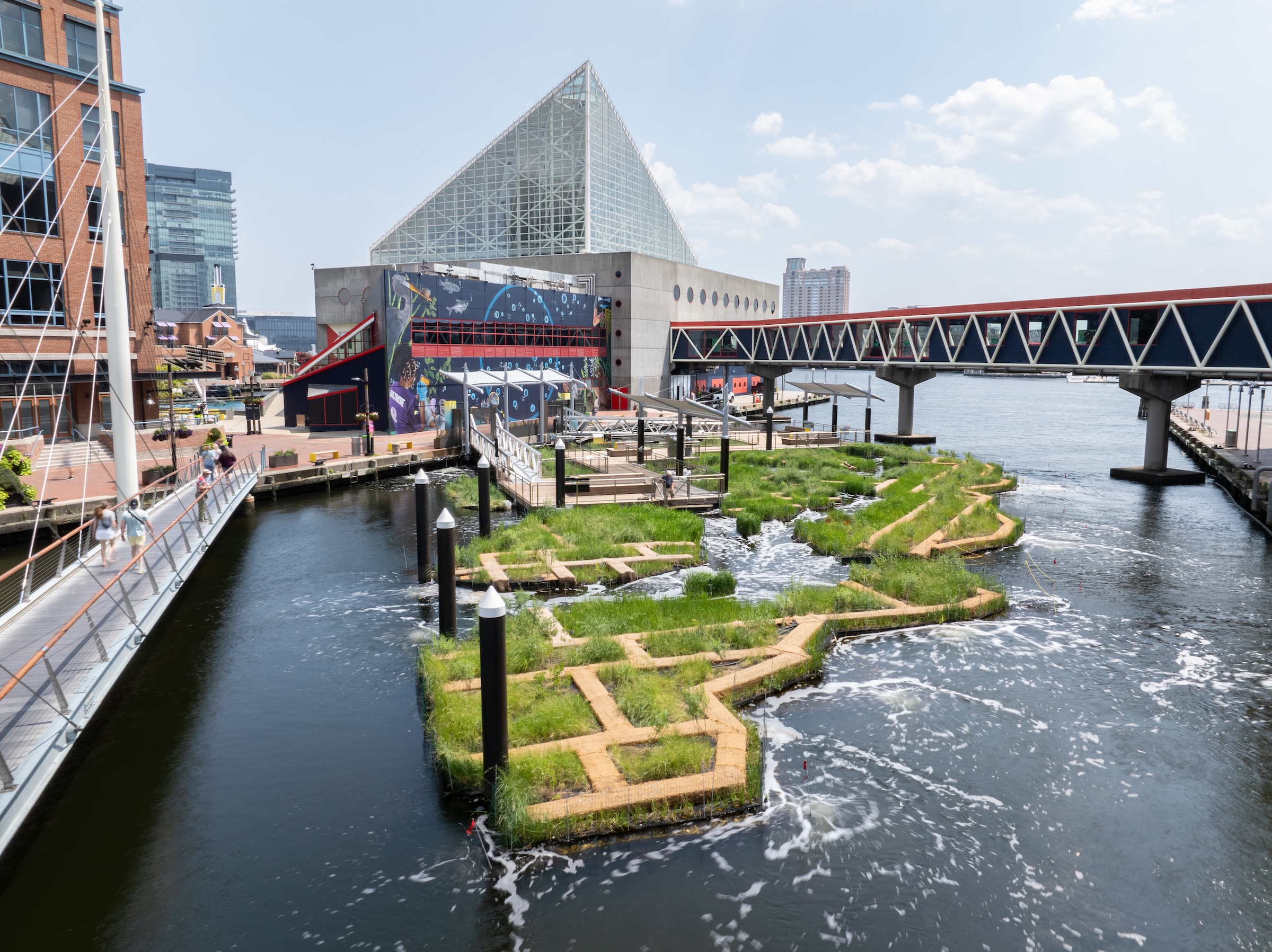
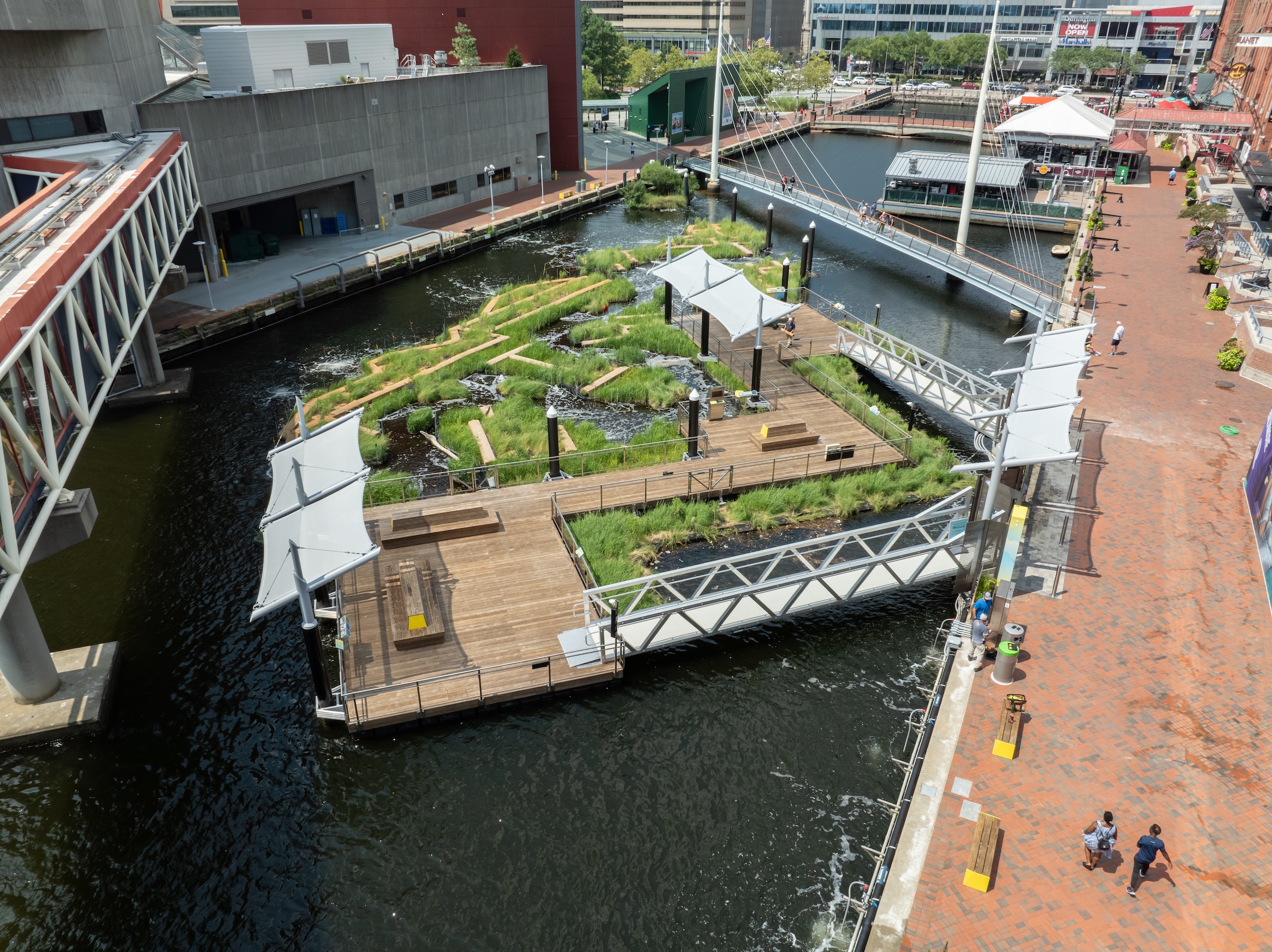
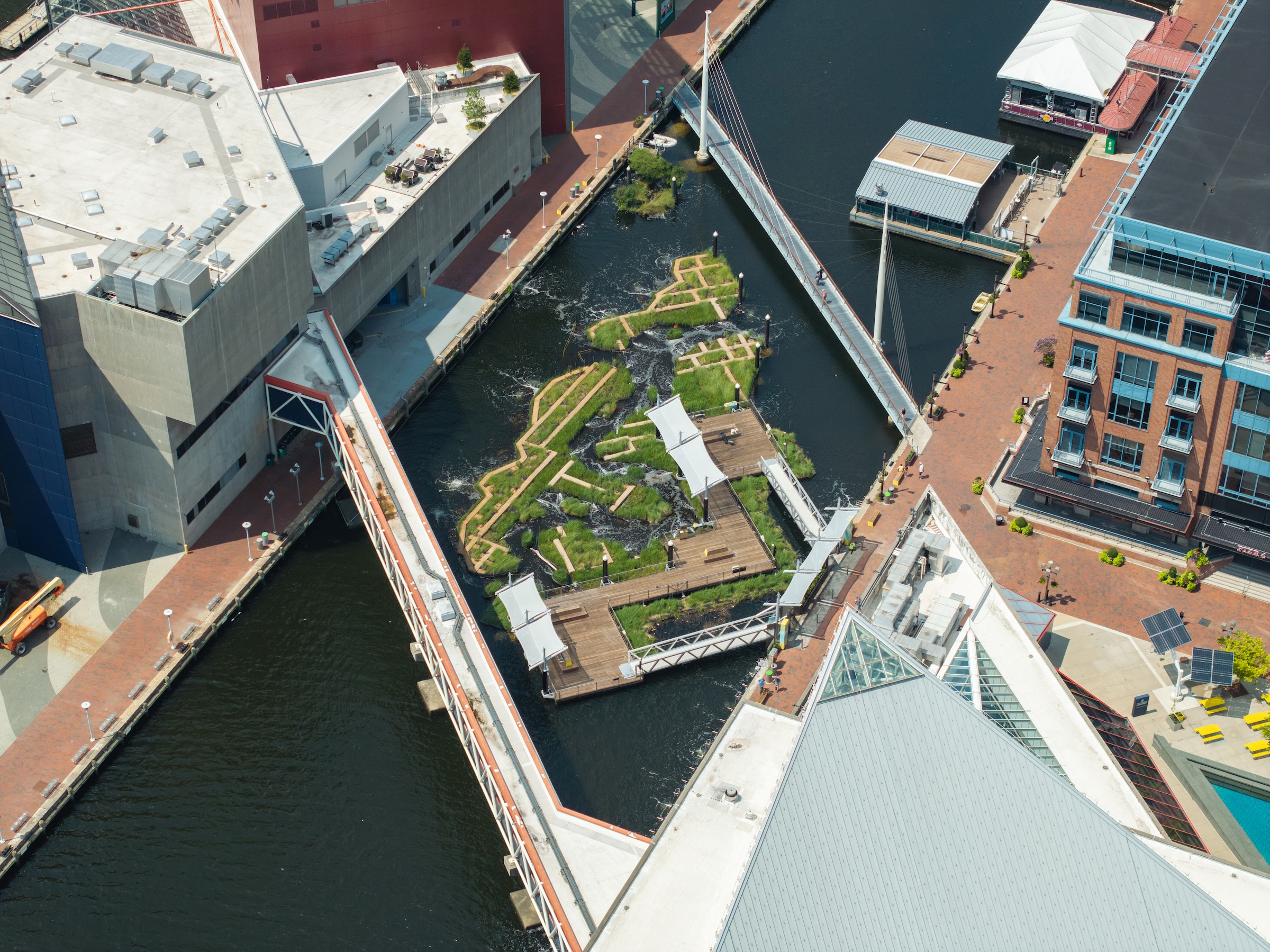
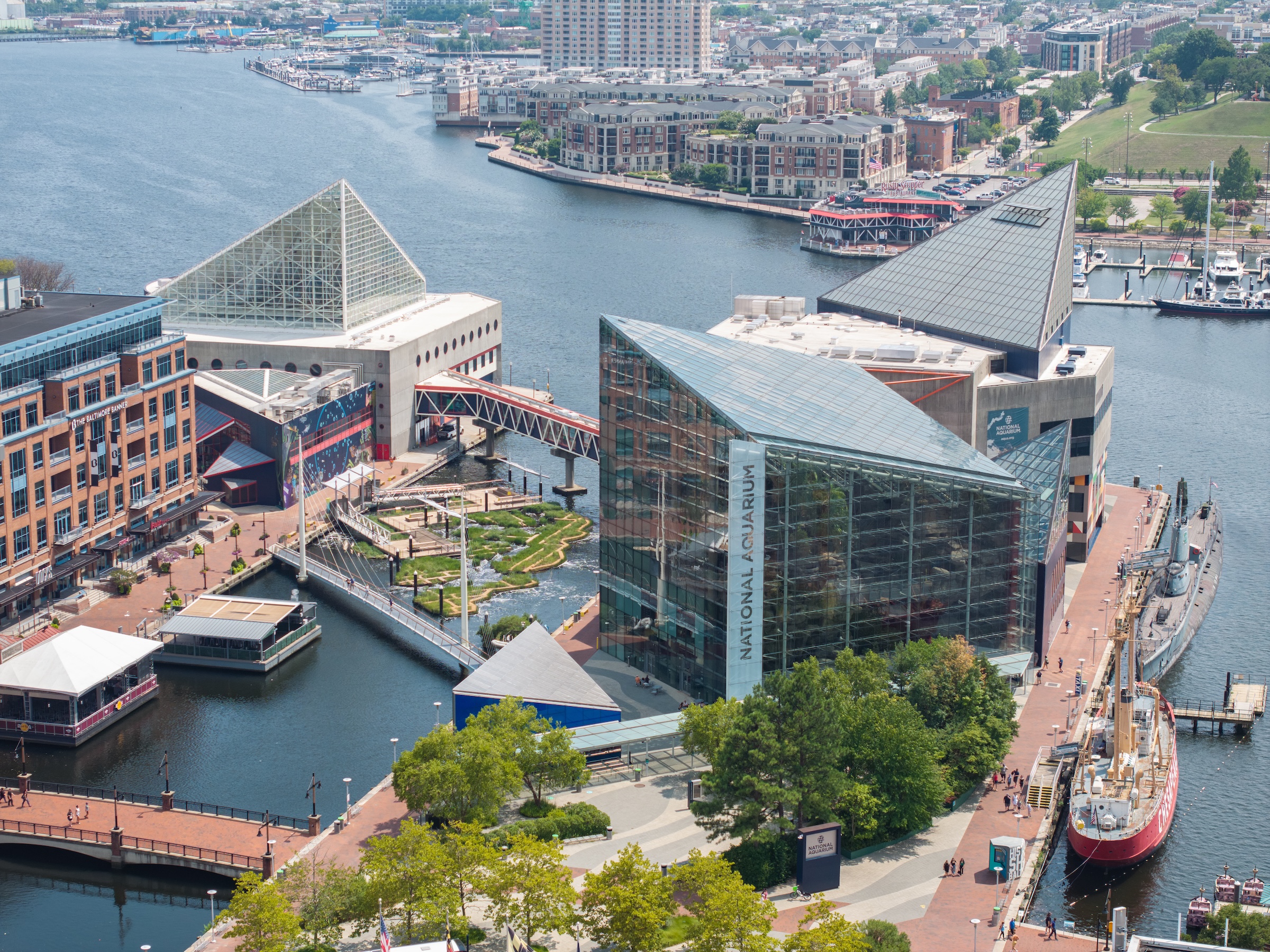
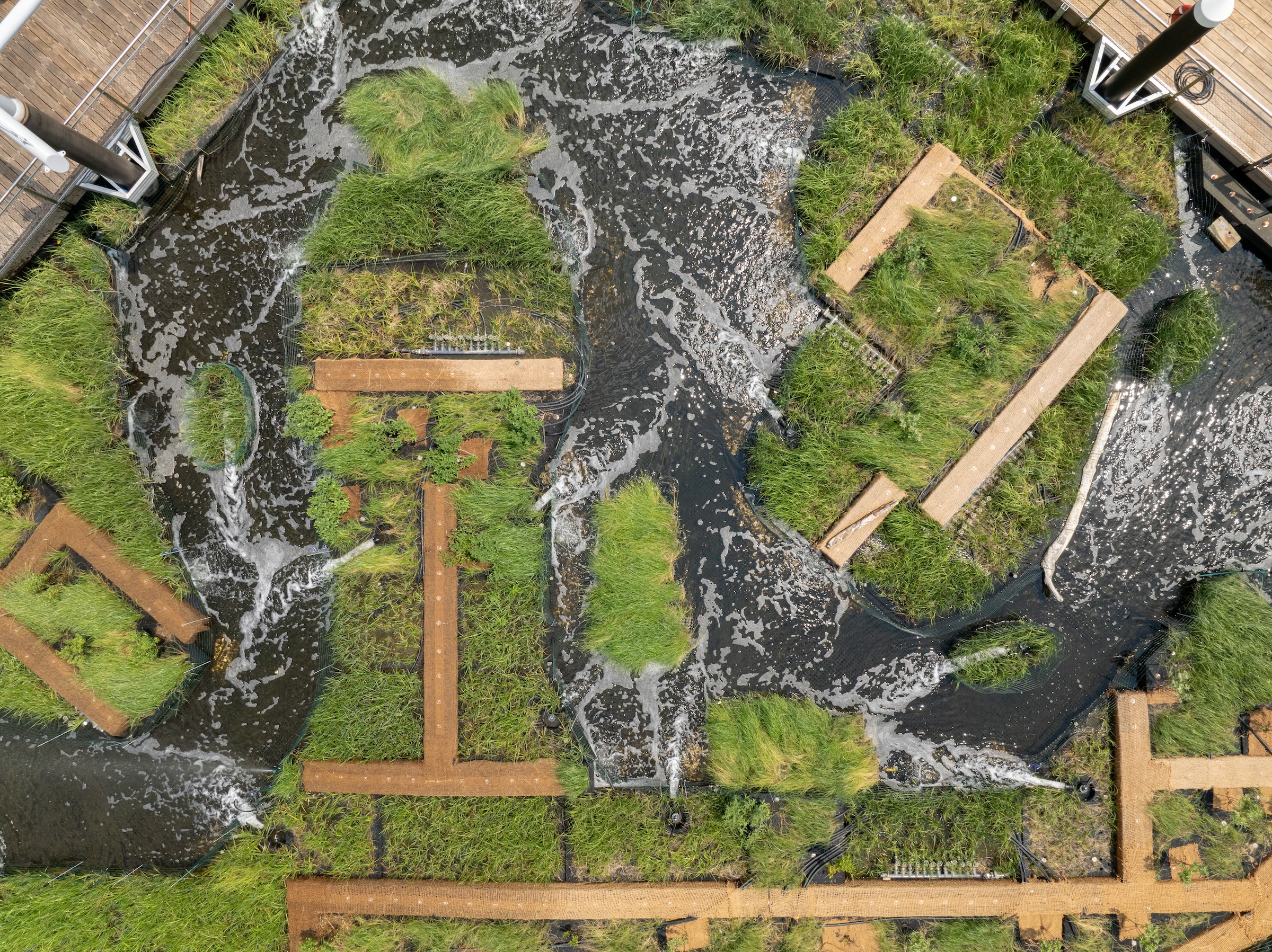
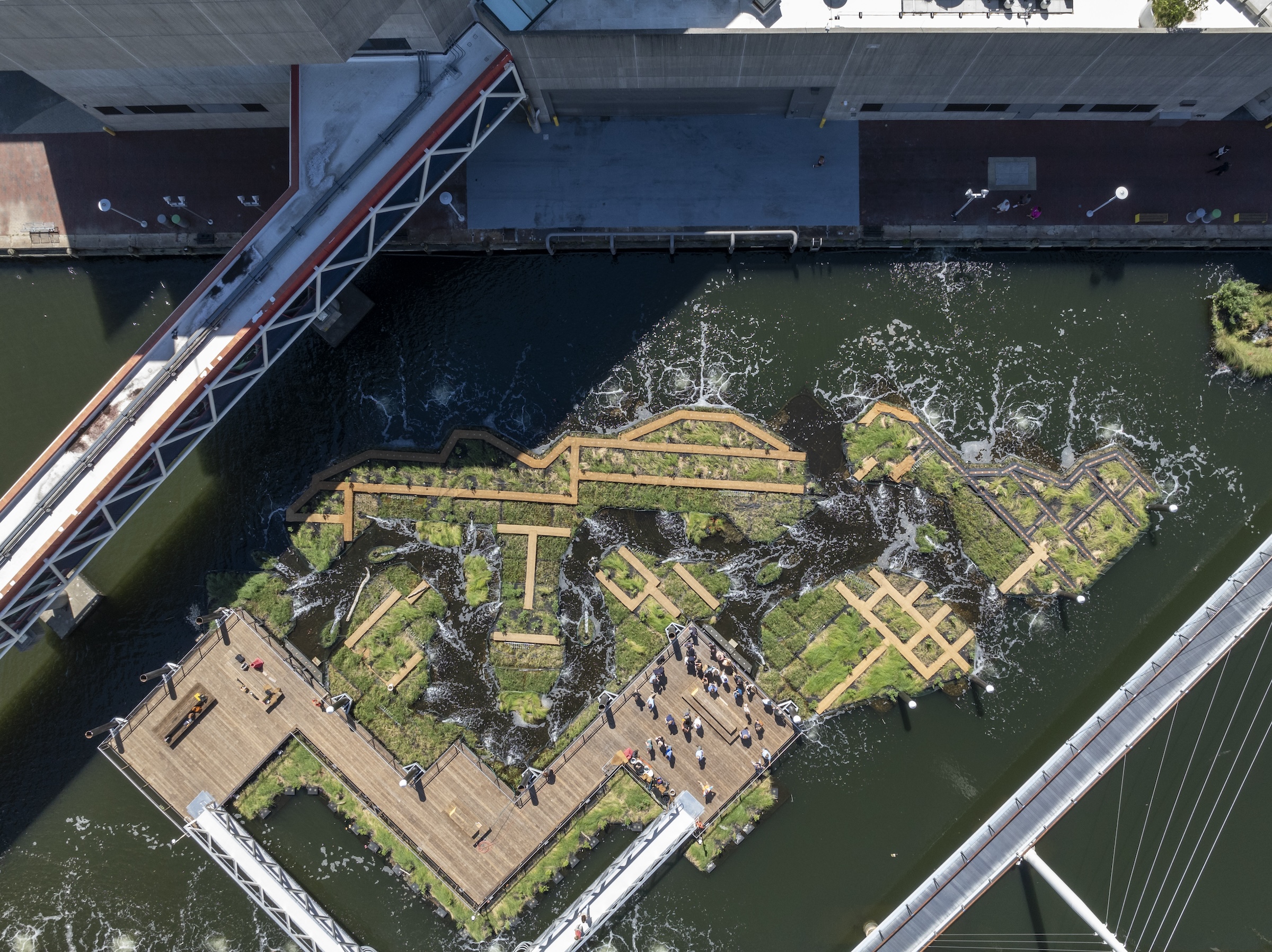
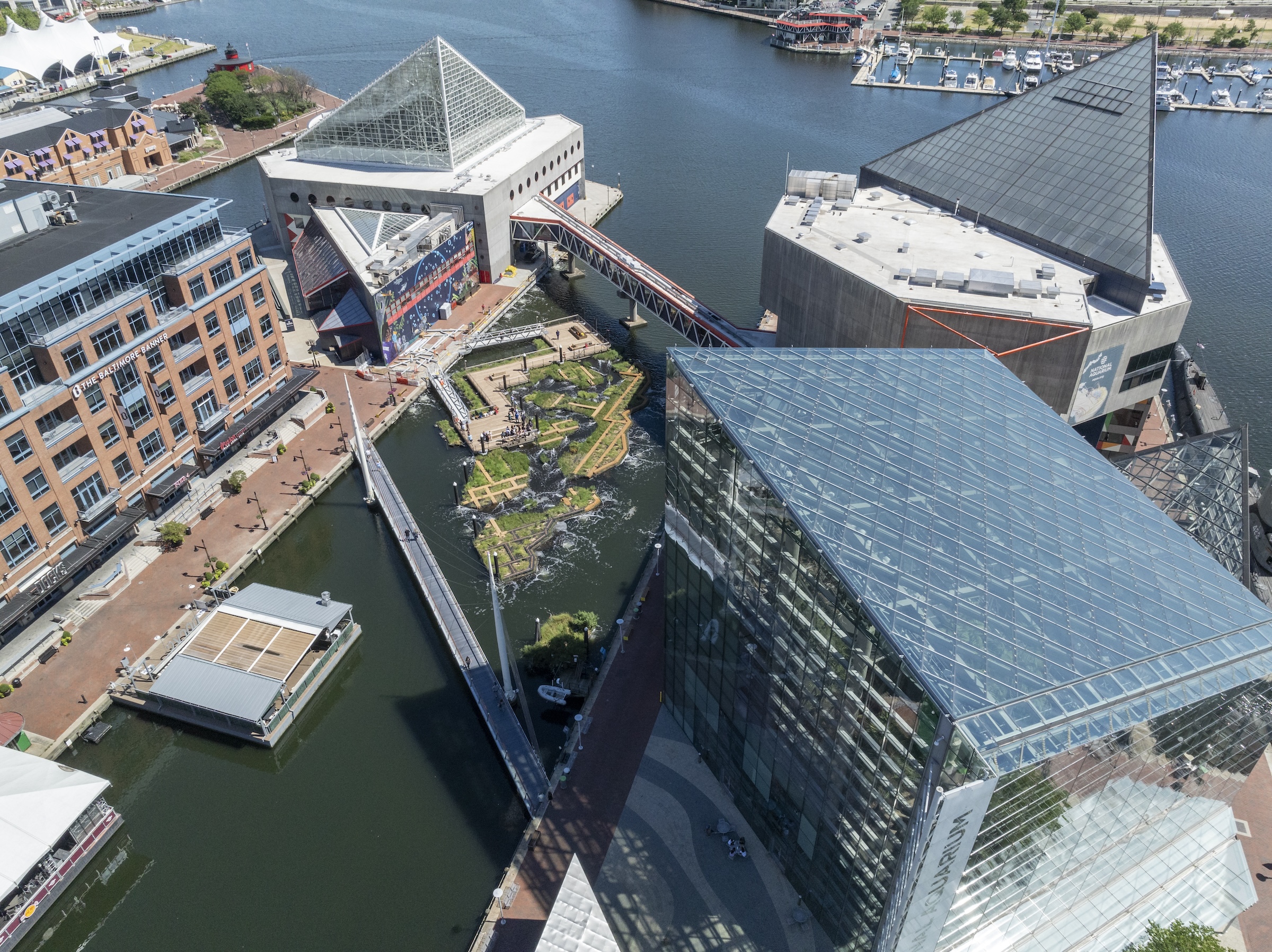
Related Stories
Cultural Facilities | May 15, 2015
Design for beekeeping facility in Tanzania by Jaklitsch/Gardner Architects unveiled
The developers say the center will be an important educational and vocational tool.
Cultural Facilities | May 14, 2015
Szczecin Philharmonic Hall wins Mies van der Rohe Award 2015
The hall is composed following a Fibonacci sequence whose fragmentation increases with the distance from the scene.
Cultural Facilities | May 13, 2015
MVRDV selected to design High Line-inspired park in Seoul
The garden will be organized as a library of plants, which will make the park easier to navigate.
Museums | May 13, 2015
The museum of tomorrow: 8 things to know about cultural institutions in today’s society
Entertainment-based experiences, personal journeys, and community engagement are among the key themes that cultural institutions must embrace to stay relevant, write Gensler's Diana Lee and Richard Jacob.
High-rise Construction | May 6, 2015
Parks in the sky? Subterranean bike paths? Meet the livable city, designed in 3D
Today’s great cities must be resilient—and open—to many things, including the influx of humanity, writes Gensler co-CEO Andy Cohen.
Multifamily Housing | Apr 22, 2015
Condo developers covet churches for conversions
Former churches, many of which are sitting on prime urban real estate, are being converted into libraries, restaurants, and with greater frequency condominiums.
Green | Apr 22, 2015
AIA Committee on the Environment recognizes Top 10 Green Projects
Seattle's Bullitt Center and the University Center at The New School are among AIA's top 10 green buildings for 2015.
Cultural Facilities | Apr 20, 2015
Jean Nouvel loses court battle against Philharmonie de Paris over alleged design ‘sabotage’
Nouvel boycotted the January opening of the facility and asked for his name to be removed from all references to the work.
Cultural Facilities | Apr 16, 2015
Milwaukee’s Lakeshore State Park visitor center will be ‘off the grid’
The plans also include a built-in wastewater treatment system and rainwater collection.
Museums | Apr 10, 2015
Henning Larsen Architects designs timber museum extension in Sweden
The new extension will complement Österund’s wooded surroundings


